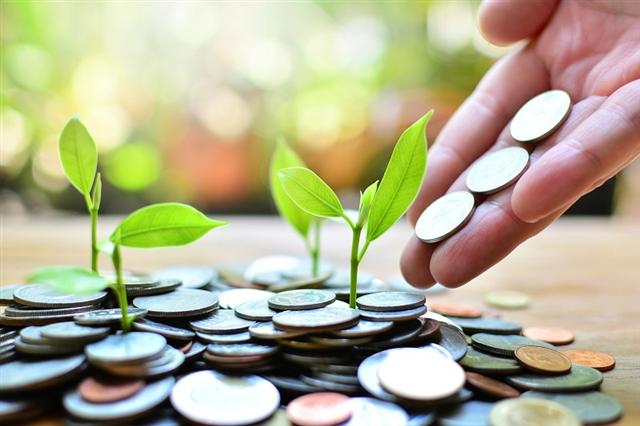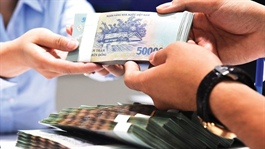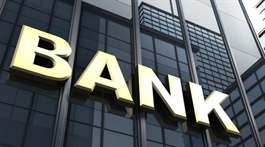Institutions shift to greener methods
Institutions shift to greener methods
Financial institutions from around the world of all shapes and sizes are actively seeking approaches to reduce the profound impact of climate change as their sustainability initiatives

Institutions shift to greener methods (shutterstock)
|
Private markets firms Ardian, The Carlyle Group, Global Infrastructure Partners, Macquarie Infrastructure, and SoftBank Investment Advisers are joining two other groups under the One Planet initiative – one for sovereign wealth funds and another for asset managers.
Asia Investor Group on Climate Change executive director Rebecca Mikula-Wright said, “Investors’ engagement with companies on climate change has become a dominant theme in global capital markets and already helped creating a marked shift in corporate attitudes towards better integrating climate risk response. Investors are concerned some companies are not sufficiently prepared for the transition to a net-zero emissions economy,” she added.
Further afield, e-commerce platforms such as Lazada and Shopee are coming under increasing pressure over the toll on the environment from delivering millions of packages, especially as e-commerce has boomed amid the pandemic. US giant Amazon is also under fire for its sustainability practices. Consequently, Joe Biden’s victory in the US presidential race is viewed as a potentially significant impetus for a green, sustainable economy.
“Biden’s win would probably be seen by some investors as a negative, hence equity markets could experience some kind of sell-off. However, we are of the view that a Biden presidency will provide opportunities in some sectors including the environment, renewable energy, and education,” noted Lam Nguyen, analyst at Viet Dragon Securities.
The new administration’s top priority is a transition of the US economy’s reliance on fossil fuels to one driven by renewable energy sources.
Likewise, US and other financial institutions are aiming for material steps towards building a low-carbon economy. As such, insurance companies and financial firms around the world moved a step closer to reducing their contributions to greenhouse gas emissions (GHG), including HSBC, BNP Paribas, and Standard Chartered.
For instance, HSBC will develop tailored financial products to help reduce GHG emissions and prioritise financing and investment that spurs the low-carbon transition. The bank aims to support customers with investments between $750 billion and $1 trillion by 2030 with their transition.
In October, JPMorgan became the latest bank to expand investment in clean energy and is now working towards net-zero emissions by 2050, in line with the Paris Agreement.
Singaporean multinational banking organisation UOB also said it would integrate environmental, social, and governmental considerations into its suite of retail investment solutions.
Elsewhere, Mitsubishi UFJ Financial Group, Mizhuo, and Sumitomo were the world’s three largest lenders to coal-power development between 2017 and the third quarter of 2019. The three banks contributed $39.35 billion, or a third of loans, to all of the world’s coal plant developers.
Japanese megabank Mizuho Financial Group was the largest lender for coal-fired energy, offering $16.8 billion of loans to the developers of coal-fired plants during the period, followed by MUFG and Sumitomo.
However, all three Japanese megabanks recently confirmed to halt investing in and lending to new coal-fired power plants as part of their efforts for decarbonisation.
Mizuho plans to halve the outstanding balance of around $2.8 billion by 2030 and reach zero by 2050.
South Korean lenders like Shinhan Bank and Woori Bank have also issued sustainable bonds and financial support packages for renewables.
Shinhan said it is the first East Asian financial group to announce zero-carbon plans, reaffirming its efforts to not only reduce emissions but also no longer lend for companies with high carbon emissions.
In Vietnam, local lenders are also accelerating eco-friendly initiatives. VPBank and Proparco have signed a $50-million loan to encourage climate-friendly initiatives, green and energy-efficient projects, as well as small- and-medium enterprises.
MB Bank, meanwhile, has utilised green credits as a tool to support businesses to cut carbon emissions while achieving a sustainable growth.
Elsewhere, BIDV, VietinBank, Agribank, and TPBank, among others, have committed to use their expertise and resources to support clients’ journey towards embedding sustainability as an important strategy.
Nguyen Hung, CEO at TPBank said, “TPBank has rolled out a number of green initiatives to meet the multi-faceted needs of a sustainable economy. We commit to expanding eco-friendly finances in a bid to build a healthier and more resilient future for Vietnam.”
In Ho Chi Minh City, where direct infrastructure damage from flooding could amount to $0.5-1 billion by 2050, knock-on costs from the cascading impacts of climate change could be between $1.5-8.5 billion, according to McKinsey & Company.
The company found that the impacts from intensifying climate hazards could in many cases be more severe for Asia than for other parts of the world.
























